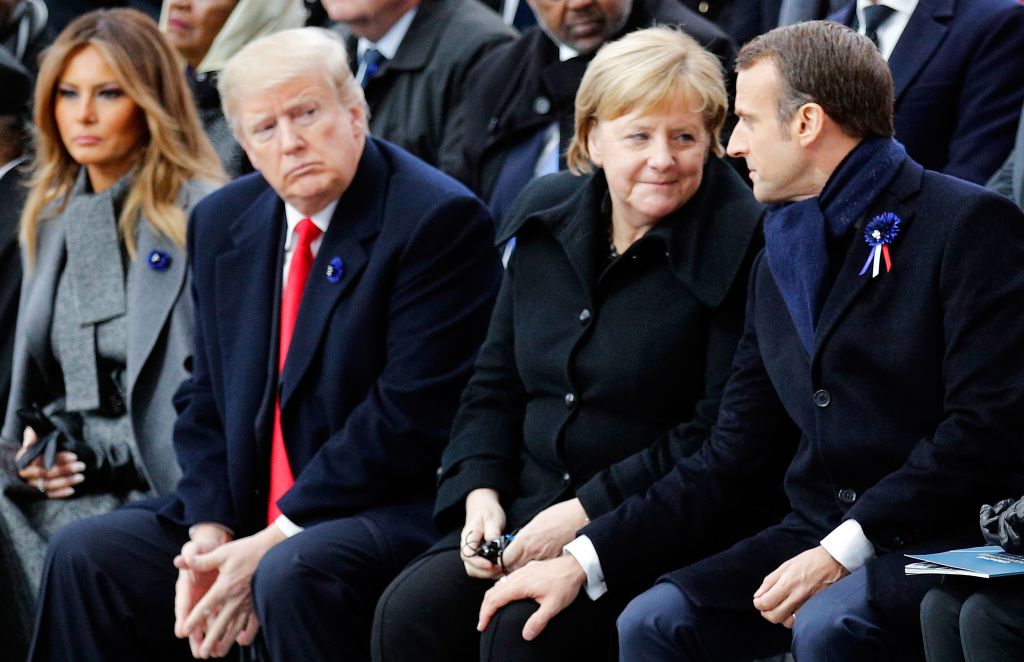The Europeans always held an inkling that sooner or later, a time would come when an impatient Washington would announce to the world that any country or entity buying or dealing with Iranian crude oil would be kicked out of the US financial system. The threat of US sanctions hung in the air like a Sword of Damocles, a warning to governments in Europe and Asia to tread lightly.
And, sure enough, the Trump administration’s patience has finally run. On April 22, US Secretary of State Mike Pompeo walked up to the State Department podium and announced that Washington would no longer tolerate overseas purchases of Tehran’s crude. “Today I am announcing that we will no longer grant any exemptions,” Pompeo said. “We’re going to zero [imports] – going to zero across the board.”
While Europe may have anticipated this decision, the diktat from Washington wasn’t appreciated nor particularly understood. The European Union, which has been trying desperately to keep the Iranian nuclear deal afloat, quickly released a statement expressing its disappointment at a policy that could very likely kill one of its biggest diplomatic achievements. In the minds of Theresa May, Angela Merkel, Emmanuel Macron, and the all the rest, it’s simply nonsensical to weaken an agreement that keeps Tehran from acquiring the capability to build a nuclear weapon. Yes, the deal is far from perfect, but surely it was better than the alternative—an Iran free of IAEA restrictions, nuclear inspectors, centrifuge limits, and uranium enrichment caps?
Unfortunately, the White House doesn’t see the Iran issue the same way. Whereas the Europeans are concerned about Tehran’s refinement of ballistic missiles, support for terrorists and proxies, and human rights abuses at home, the Americans (those in power, anyway) tend to glance at Iran and see a bunch of crazy ayatollahs chanting “death to America” with their fists in the air. The Trump administration is stacked with visceral hawks and uber-hawks on Iran like Pompeo, Vice President Mike Pence, national security adviser John Bolton, and State Department coordinator Brian Hook—all of whom salivate with delight as they daydream about the regime’s impending collapse. The threat perception of the Iranian problem is like night-and-day between European capitals and Washington, which only makes it harder for European leaders to talk some sense to their American colleagues.
Now that the decision to cut off Iranian oil waivers has been made, Europe will have to deal with the consequences. It’s not so much a worry about whether European governments can find alternative suppliers once Iranian barrels are taken off the market—Saudi Arabia, the UAE, Russia, and the US have all pledged to ensure global oil supplies will be steady.
The issue for the EU, rather, is whether there is anything it can do to soften the blow for Iran in order to convince Supreme Leader Ayatollah Ali Khamenei not to turn his back on the deal completely. INSTEX, the alternative EU-Iran channel that is designed to allow direct, non-dollar transactions between the two, is still not fully operational. Once it is up-and-running, the trade passing through the mechanism may be so minuscule that it wouldn’t make much of an impact on Tehran’s calculations. The Trump administration has put international firms in a tough spot: you can either trade with the United States or trade with Iran, but you can’t do both. For businesses who want to keep their access to the US market, this choice is no choice at all.
Washington’s full blown economic warfare against Iran is unlikely to get the leadership in Tehran to cave, especially when America’s demands are so pie-in-the-sky. But it will almost certainly strain transatlantic relations to an even higher level, all in service of tackling a threat that is far below existential to the US or Europe.






Comments